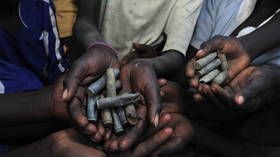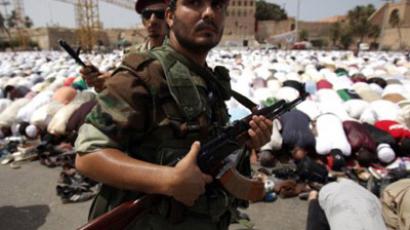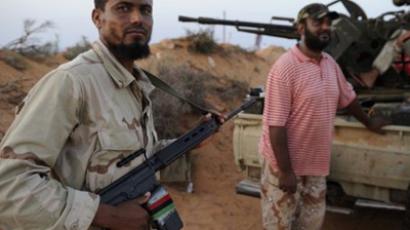Real chaos on cards for new Libya
The security chief of ousted Libyan leader Muammar Gaddafi has reportedly fled the country for neighboring Niger on Tuesday. With Gaddafi’s whereabouts still unknown and rebels controlling most of Libya, experts fear the real chaos is yet to come.
Mohamed Hassan is one of Africa's most experienced diplomats. Just back from the Libyan capital, Tripoli, he says NATO bombing has turned it into a ghost town. “There is no police, there is no administration, there are no schools,” he said. Law and order has been replaced by a motley crew of rebels. Some fear that the various groups who have emerged might soon start fighting each other.“Weapons stores have been raided, every man is armed with Kalashnikovs,” said North Africa expert Peter Piccinin. “If the tribes fight for their independence the country will enter a never-ending civil war with brutal urban guerilla warfare.” Analysts argue that even rebel leaders do not know where their fighters are from.“Rebel head Mahmoud Jalil was alarmed to find Islamist sleeper cells had joined his Tripoli offensive,” Piccinin added. “A vast parallel structure of combatants has appeared – we have no idea who is in charge of them.” NATO's hopes of a reliable replacement for Muammar Gaddafi are fading. Libya's rebels are deeply divided, and the chaos from NATO bombing is threatening to spread beyond the country's borders.In the turmoil, there are fears that religious extremists could be using Libya as a base to further their aims in North Africa.“Tunisian women got abortion rights 20 years before women in Belgium,” said Anna Morelli, president for Women for Peace. “Under the last regime, divorced women got benefits. Revived Arab religious movements are trying to reverse that.”Before the war, leaders from Barack Obama to Nicolas Sarkozy and Silvio Berlusconi shook, and even kissed, Gaddafi’s hand. The rebels got the red-carpet treatment in Paris last week. According to Mario Franssen from International Observer Mission in Tripoli, who has just returned from Libya, the message from some locals is that the conflict may have created a Frankenstein’s monster for Europe.“They warned us that we do not know what we are creating in Libya,” he said. “It will be a free haven of all extremist groups which are just on the southern border of Europe.” Pirates from failed Somalia made their coast a no-go zone. Frighteningly, Mohamed Hassan thinks that Libya is heading in the same direction.“Mediterranean will not be a safe sea. There will be pirates, and they will be obliged to control the Mediterranean, to make it safe,” he said. “I do not think the French economy can support that.” With Western intervention in Libya having brought a large number of new forces to the fore, experts fear the West itself may come to regret their emergence.














